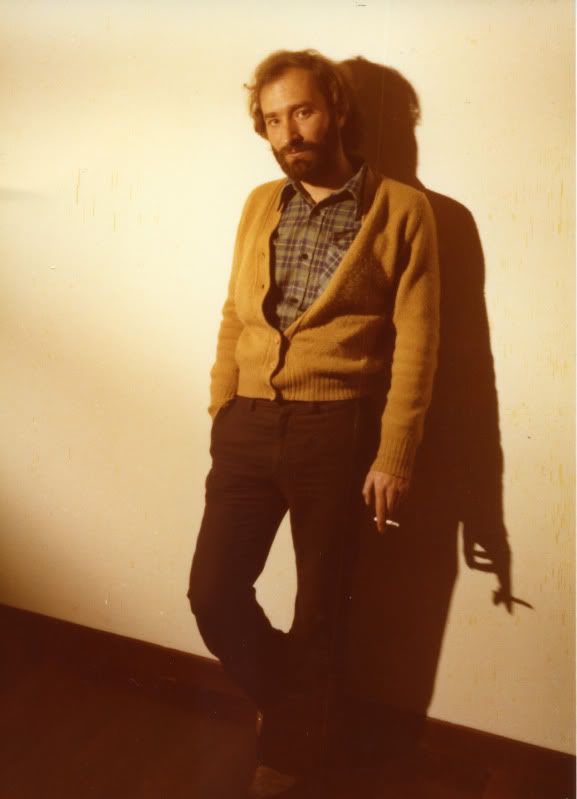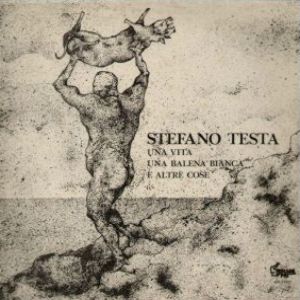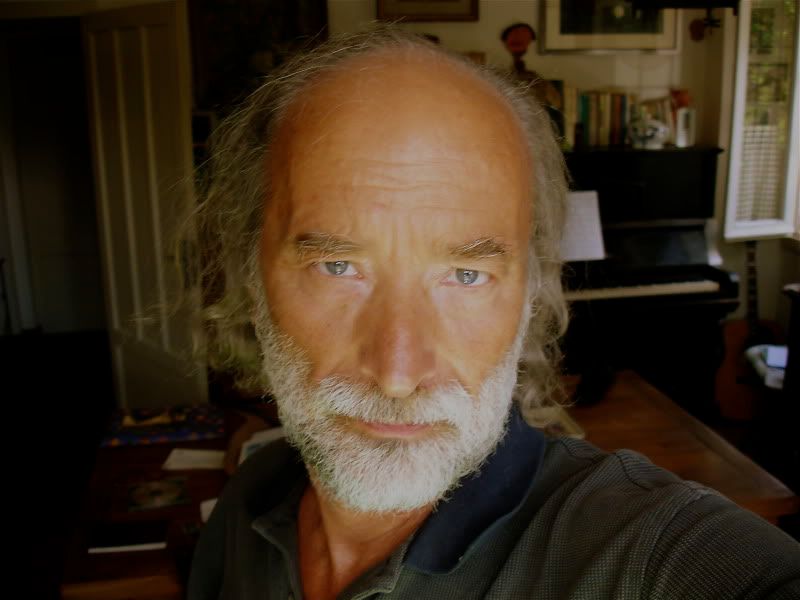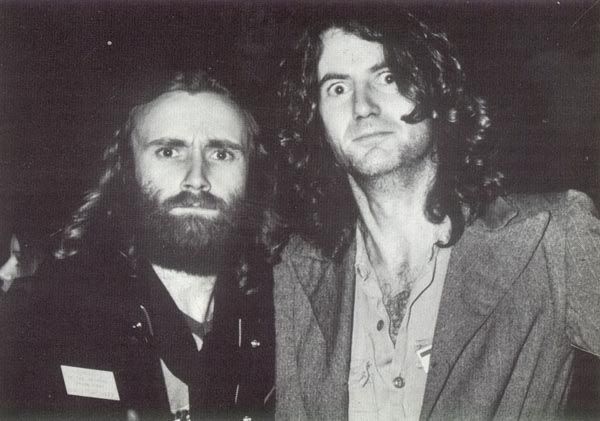Stefano Testa RPI interview - Sept 2009
Printed From: Progarchives.com
Category: Progressive Music Lounges
Forum Name: Interviews
Forum Description: Original interviews with Prog artists (which are exclusive to Prog Archives)
URL: http://www.progarchives.com/forum/forum_posts.asp?TID=61360
Printed Date: April 22 2025 at 13:21
Software Version: Web Wiz Forums 11.01 - http://www.webwizforums.com
Topic: Stefano Testa RPI interview - Sept 2009
Posted By: Finnforest
Subject: Stefano Testa RPI interview - Sept 2009
Date Posted: September 18 2009 at 18:55
|
Stefano Testa interview Stefano Testa has created quite a stir lately at ProgArchives, as many RPI fanatics have simultaneously discovered his lost classic album from the 1970s, the delightful “Una Vita Una Balena Bianca e Altre Cose”. This is a masterpiece, albeit an obscure one, that you the listener truly should hear. I tried to track down Mr. Testa to get the story about this fine work. Thankfully he contacted me and I am honored to have the chance to document the story of someone who created an amazing RPI gem. Please fill us in on when and where you were born, and your first musical experiences. I was born in Rome in 1949. Since I was 10 I lived in Porretta Terme, a small town in the mountains between Bologna and Florence. I've two memories about my first relations with music: when I was 5 I had been excluded "with dishonor" from the chorus by the asylum (kindergarten) teacher, after trying to sing a scale accompanied by the piano. Then I remember a morning in 1958: under a blue roman sky I was alone singing, with great happiness, "Volare", by Domenico Modugno. When I was 15 my mother presented me a guitar.  You came of age in the ‘60s I presume. What was your musical evolution like during your school and college years? During college years I listened to Rolling Stones, The Beatles, The Animals, The Byrds, Simon and Garfunkel, etc, but also to great Italian authors, like Luigi Tenco, Sergio Endrigo, Gino Paoli. In 1965 a friend of mine made me listen for a home made recording by a young folksinger in Bologna: "Auschwitz", by Francesco Guccini; and so I understood that in songs is even possible talking about important arguments. After a little bit of time I discovered Bob Dylan and Fabrizio de André. When I was 17, I and 4 friends of mine created a beat group, "Gli Scorpioni". I started writing my first songs. Let’s get into the early ‘70s, a very charged social moment in Italy but a very fruitful one for Italian progressive rock. What were you up to in the early ‘70s? In Italy in that period the social and political engagement was mixed with the interest for culture and with the need to experiment new artistic languages. Public was interested and enthusiast for any tries of original communication, from theater (Carmelo Bene, Leo de Bernardinis, Dario Fo) to cinema (Fellini, Visconti, Antonioni, Bertolucci, Bellocchio, Bunuel, Altman, Pasolini) and music (Il Banco, la PFM, gli Area, etc). There was the sensation of living as protagonists the eve of an epochal changing. Unfortunately, the leading class didn't manage to catch that unrepeatable occasion. Who were your influences at this time, both internationally and nationally? Together with my friend Marco Coppi ( the flute player in "Una vita, una balena bianca e altre cose") I listened to Jethro Tull, Gentle Giant, Genesis. I also loved the "concept albums" by de André ("Tutti morimmo a stento", "La buona novella", "Non al denaro, non all'amore, nè al cielo", from Edgar Lee Masters,"Storia di un impiegato", the earlier two records by Alan Sorrenti ("Aria" and "Come un vecchio incensiere..."), the earlier two ones by Francesco De Gregori ("Alice non lo sa" and "Francesco De Gregori") and Leo Ferrè. Listening to these works, I was pushed to try going beyond the classic song form and to tell stories in a more free way. Tell us about the “Portici Trio” and where this group was in your evolution. Portici Trio are Claudio Dadone, Lorenzo Marino, and Salvatore Settis. I was introduced by my friend from Cuneo, Bruno Lubatti, while preparing the album. We passed some time together and we "covered" the record with the gorgeous sound of their guitars. In that period the Portici trio hasn't , like me, any discographic experience, but they were already very good musicians. From that moment they successfully continued their musical career (they have also often collaborated with Paolo Conte and Gianmaria Testa). Tell us about the events that led to the recording of Una Vita in 76-77, at a time when the prog scene in Italy had surely tightened up. How is it that you were able to assemble a large group and get a label to go for this kind of album in ’77? A great friend of mine, a director of an important art gallery in Cuneo, Fabrizio Quiriti, knew my works and let me meet a very experienced owner of a record label (Disco Più), Giampiero Simontacchi, who had been director of the Italian Barclay. He listened for "Una vita" and fell in love with that project. He was conscious that it would be expensive, above all for the string orchestra, but despite it he decided to make the album. What were your intentions and ambitions for the album? I think I was hoping that the work could be the beginning of a personal research about a mix between the narrative possibility of the ballad and melodic and harmonic wealth of song. For our many Italian prog fans who speak only English, please give us some background on the lyrical themes. What is the album about? "Una vita" tells about four moments in the writer Cesare Pavese's life, seen as a flashback in the hotel room where he will commit suicide. "La ballata di Achab" is the story of the ship master who hunts Moby Dick and of everything it represents. Risveglio", "Notturno" and "Difficile chiamarti amore" are little "existential" songs. "Il dio sulla ferrovia" is inspired by a Borges tale and tells about a little point of bright light: looking into it the protagonist can see a lot of human history happenings and of his own life. "Ninna nanna" is a lullaby for a dead child.  The album is an incredible mix of symphonic, folk, and RPI spirit. It may not have been groundbreaking but the quality of the composition, arrangements, and execution is stunning in my book. Was the material written in a short period of time, or conceived over many years? When I signed the contract with Disco Più, I had already written "Una vita" (1975) and "Notturno" (1969). Then I wrote the other songs in a little time, that took the place of the other ones that originally should have been in the album. Simontacchi let me absolutely free to choose and in the whole period of the album production. The long suite is really a treasure. The sound quality and arrangements are wonderful, with a warm organic guitar/bass and the tension that builds with the flute, strings, and backing vocals. It really is one of the premier cuts of the 70s Italian scene and a must for our RPI fans to hear. Can you share your feelings about it? Thinking about it now, I think that sound was the result of a lucky mix between different experiences: the Portici passion and skill, Marco Coppi's and mine love for RP and classical music and, above all, Franco Chiaravalle's sensibility, arranger and great connoisseur of classical Naples songs, who followed the album realization. Most Italian bands from the 70s had very little studio time to construct their masterpiece and many had only one chance. How much time were you given in the studio to record this? Music was recorded in one week and I sang the entire album in one day only. “La Balleta di Achab” is a deliciously playful romp of a song, with some breathy females behind your vocal. What are your recollections about this song? I remember I wrote it in few days. I was bound in a certain way with "Una vita", because the Melville's book most famous Italian translation was by Cesare Pavese and, reading one of his essays I had the idea of the song. I was interested in talking about Achab as a rude merchant of whale meat and about Ulysses who, pushed by the duty of knowledge, should arrive to the extreme consequences in the comparison with nature and God. The rude piano should recall the pub atmosphere , the strings in the chorus should represent the sea infinity and the epic mystery of life. The phrase of the breath accordion had been invented by Claudio Dadone. The rhythmic female breath had been an invention I found remarkable by Franco Chiaravalle. The song meaning is perhaps in the final lines: "That whale was the sea, that whale was me too, that whale didn't exist, that whale was God". Marco’s flute melody on the closing lullaby is just magical, and then you follow that with the female vocal doing the same melody. Beautiful! I wrote that melody, and Chiaravalle and Coppi had the idea to double it with female voice. Tell us what you can about the other musicians and singers. Alberto Mompellio (moog), Cosimo Fabiano ( bass) and Ottavio Corbellini (drums) were musicians from Milan appreciated by Chiaravalle. Female voices was by "Le figlie del vento", who in that period had a good international success with a Chiaravalle's song. There was also an American choirist, but I can't remember her name. The string orchestra was formed by elements from Orchestra della Scala and from RAI Orchestra. What is the significance of the album cover, which is striking and with a classic quality. The album cover had been painted by a friend of mine in Porretta, Mauro Milani. I can't say what it means. We chose it because, besides being beautiful, because it represented in a good way the meaning of the musical project: something that should be at the same time classical, mythological and barbarous. The album is an acoustic one. I’m wondering if you considered using electric guitar more and why you decided against it? From the beginning we though to acoustic sounds, even if, naturally, we loved electric guitar. I believe that those lyrics, besides the importance of the Portici acoustic guitars, didn't admit it. We also wanted to give the entire album a meaning of distance, like a memory, and we though acoustic guitars and flute were right for it. How did you get together with Mauro to do the Mellow reissue? It’s a great sounding disc—was the vinyl also as good? How many copies were pressed in the original vinyl run? At this time I don't know Mauro Moroni and his label; but I'm grateful to him for giving a new life to an album otherwise destined to the oblivion. Original pressing was about 2000 copies. Did you play this material live after the release of the album? Unfortunately I didn't do it, for several reasons: it should have been necessary a pretty large organic, and perhaps my shame to sing in public, and so on. I’m guessing you never expected to be hunted down by some American prog fan 30 years on to be interviewed. How does it feel to see your album being praised on Progarchives after so much time has passed? I felt a very great emotion. Besides their megalomaniac attitudes, who make "art" is a little blind cat, that is never sure in what he does. And only when someone calls him "beautiful" does he understand he hasn't worked in vain. If someone, then, say you from the USA, the land that has given a lot of things that influenced your life ( Salinger, Kerouac, Dylan,Kennedy,Roth,Malcom X,Martin Luther King, etc.), it's a huge satisfaction! From this moment on, when my father will reprove me for my "dissipated" life, I'll make him read ProgArchives! What have you been doing in the years since Una Vita? Are you still involved in music? After "Una vita", I proposed to Simontacchi another long suite: " Decadenza e morte di Andrea il Traditore", but it was too much expensive for him. I went to RCA, but times were changed and everything was more difficult: terrorism and the Moro's killing had definitely buried that marvelous and free period. There was no more time for creativity and experiments, music had only to reassure. I remained in RCA for one year, but my project was always deferred. Heavy familiar problems pushed me far away from music for some years. In 1989 I recorded an album in English, nearly a joke, with a ghost group, Boogaboo. In a song, which I'm going to send you, there were the talking voice and clarinet of Tony Scott, the notorious new yorker jazzman, which I had meet in Milan. Now I have realized, with a friend of mine, a new album influenced by the prog experience. I'll see what I'll do! By the way, in my life I run a cinema in Porretta.  With Italian prog popular again, do you have any urge to follow-up that recording? Sincerely, rather than following up that recording, so bound with that historical period, I'd prefer to propose something new, nearer to the today Stefano. I'd like to talk about it with Mauro Moroni. Looking back on the entire 1970s Italian music scene, what are your feelings about it? It's a feeling that, if I try to separate it from the inevitable nostalgia for my youth, reduces me to a sense of freedom, of hope and also of cheerful seriousness. Everyone seemed to believe in the aesthetic, and also social, importance of what they were doing. And everything seemed to be possible. Ciao, Jim e ringrazia per le buone parole anche Todd, Kenethlevine e Tszirmay. [By Jim Russell, Sept 2009] You can read about Stefano's album here at PA. You can get the album from Mellow Records or from Synphonic. My thanks to Stefano, for the interview and the photos. ------------- ...that moment you realize you like "Mob Rules" better than "Heaven and Hell" |
Replies:
Posted By: Raff
Date Posted: September 18 2009 at 19:24
Great interview, Jim ! You see, people from Rome are always the bringers of good things ! You see, people from Rome are always the bringers of good things ... ...
|
Posted By: kenethlevine
Date Posted: September 18 2009 at 19:52
|
Jim, great interview indeed. You covered a lot with relatively few questions, and Stefano gave great answers. It's especially enriching for those who don't understand Italian and now have an idea what it's all about. Thanks! Ken |
Posted By: memowakeman
Date Posted: September 18 2009 at 22:41
|
Excellent interview!
I knew about him, and his album until I read your review Jim, it was really interesting and the album is actually wonderful!
Impressive to know that such a great album was recorded in one week, and sang in just one day!! Great reading, thanks!! ------------- Follow me on twitter @memowakeman |
Posted By: Finnforest
Date Posted: September 19 2009 at 08:16
|
Thanks all, it's one of those projects that makes the RPI team a joy. And yeah, can you believe Testa sang the whole thing in one day!! These days, rock star vocalists take the first day just to arrange the candles in their "space"  ------------- ...that moment you realize you like "Mob Rules" better than "Heaven and Hell" |
Posted By: apps79
Date Posted: September 19 2009 at 10:43
|
fantastic interview and great job!
congratulations as Stefano Testa remained a ghost figure for years!
|
Posted By: toroddfuglesteg
Date Posted: September 22 2009 at 04:27
|
I just got his album and I by a happy accident found this interview. Thank you, thank you Finnforest for this interview !!! I hope PA can bring more interviews like this one. It really makes PA a better place to be. Any obscure artists out there, we should interview too. |
Posted By: Finnforest
Date Posted: September 22 2009 at 11:05
|
Thanks guys! Torodd, I'm so happy to hear you got the album! I really look forward to your review someday.  ------------- ...that moment you realize you like "Mob Rules" better than "Heaven and Hell" |
Posted By: Alberto Muñoz
Date Posted: September 22 2009 at 21:16
|
Great interview Finn, very nice reading.
I'm happy to read that many unknown RPI artist have to win their recognition that they deserve.
At least on PA -------------  |
Posted By: Finnforest
Date Posted: September 23 2009 at 15:35
|
Thanks Alberto, it was really happy that Stefano found us and vice versa. Many of the lesser known artists made albums deserving of having their story told, not just the big dogs. Knowing the collection you have, you must have this album. You have every RPI album!!  If not, better get it!! ------------- ...that moment you realize you like "Mob Rules" better than "Heaven and Hell" |
Posted By: NotAProghead
Date Posted: September 23 2009 at 20:58
Thanks, Jim.  This interview covinced me to order the album. ------------- Who are you and who am I to say we know the reason why... (D. Gilmour) |
Posted By: Finnforest
Date Posted: September 23 2009 at 21:04
Awesome, I think you'll love it, and I hope you'll write a review too!!
------------- ...that moment you realize you like "Mob Rules" better than "Heaven and Hell" |
Posted By: Mellotron Storm
Date Posted: September 23 2009 at 21:57
|
That was great Jim and timely as i've been listening to this cd all week. I laughed out loud when he said that whenever his father reproves him for his dissapaited life he'll make him read ProgArchives And also to know how meaningful these positive reviews have been to him. ------------- "The wind is slowly tearing her apart" "Sad Rain" ANEKDOTEN |
Posted By: Finnforest
Date Posted: September 23 2009 at 22:09
Yup, he's got new fans now even if we are 30 years late catching on. Better late than never. Thanks John.  ------------- ...that moment you realize you like "Mob Rules" better than "Heaven and Hell" |
Posted By: NotAProghead
Date Posted: September 24 2009 at 07:42
|
Another intersting point in the interview is that Stefano mentions among his influences Francesco Guccini and Fabrizio De Andre'. IMHO their works deserve better recognition here (De Andre' is on PA, Guccini is not and will never be, but both are so important for Italian culture).
------------- Who are you and who am I to say we know the reason why... (D. Gilmour) |
Posted By: Luca Pacchiarini
Date Posted: September 24 2009 at 09:00
|
An excellent interview, very interesting and well done.
BTW, the correct spelling of the city's name is "Bologna" :)
Great interview, anyway
|
Posted By: Finnforest
Date Posted: September 28 2009 at 18:50
Thank you Luca for the correction, I finally got it fixed up And Gene, you're not the first person to mention DeAndre to me...one of those men I need to hear more of myself. ------------- ...that moment you realize you like "Mob Rules" better than "Heaven and Hell" |
Posted By: Nightfly
Date Posted: January 17 2010 at 09:07
|
Not sure why Jim but I've only just come across this Interview recently. I have to admit to not being familiar with Stefano Testa's work but I found it very interesting with some well thought out questions put to him by yourself. I'll deffinitely be checking out his music. Better late than never!
Great work!
|
Posted By: Finnforest
Date Posted: January 17 2010 at 09:16
|
Thanks Paul. Meeting Mr. Testa online and finally getting to hear that album were one of my personal highlights of 2009. A warm and wonderful album.
------------- ...that moment you realize you like "Mob Rules" better than "Heaven and Hell" |
Posted By: giacomo
Date Posted: March 02 2010 at 15:33
|
recently, I've seen on you tube and face book some video of his new production.
It's incredible he is hardly able to find some label!
giacomo martini
|
Posted By: Finnforest
Date Posted: March 02 2010 at 17:45
|
I agree Giacomo. I've heard Stefano's new music and suggested a few labels to try, for it certainly deserves to be heard. I really enjoyed it. Those who want to hear samples of Stefano's new, unreleased music, can do so on his myspace page. Good luck Stefano!  ------------- ...that moment you realize you like "Mob Rules" better than "Heaven and Hell" |